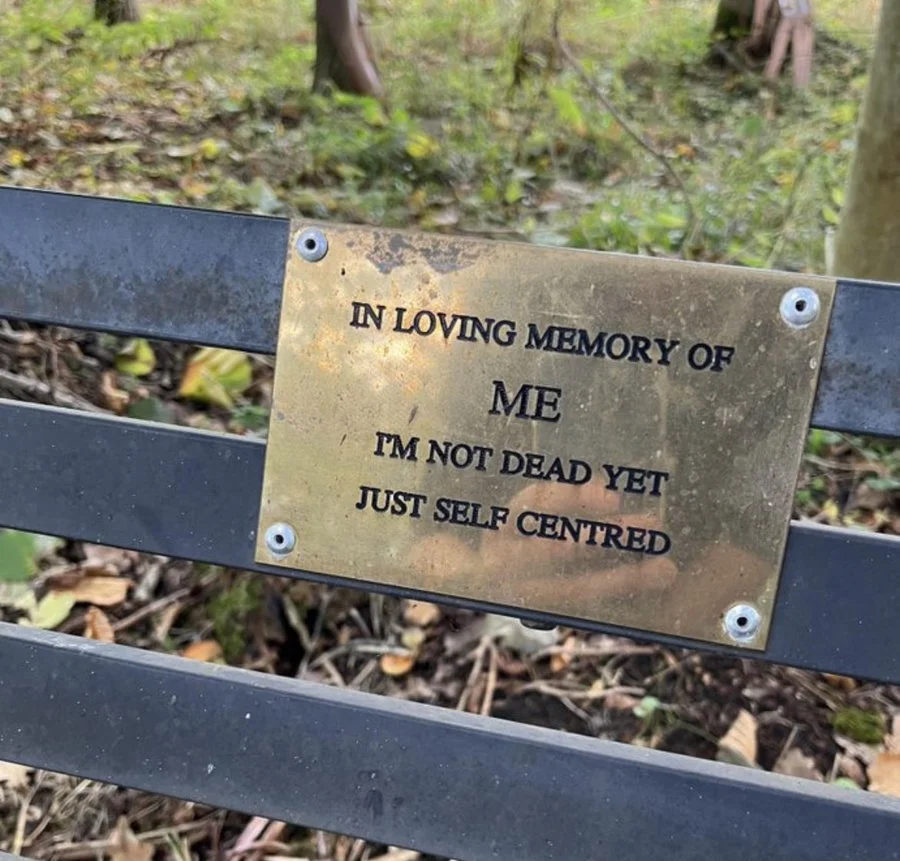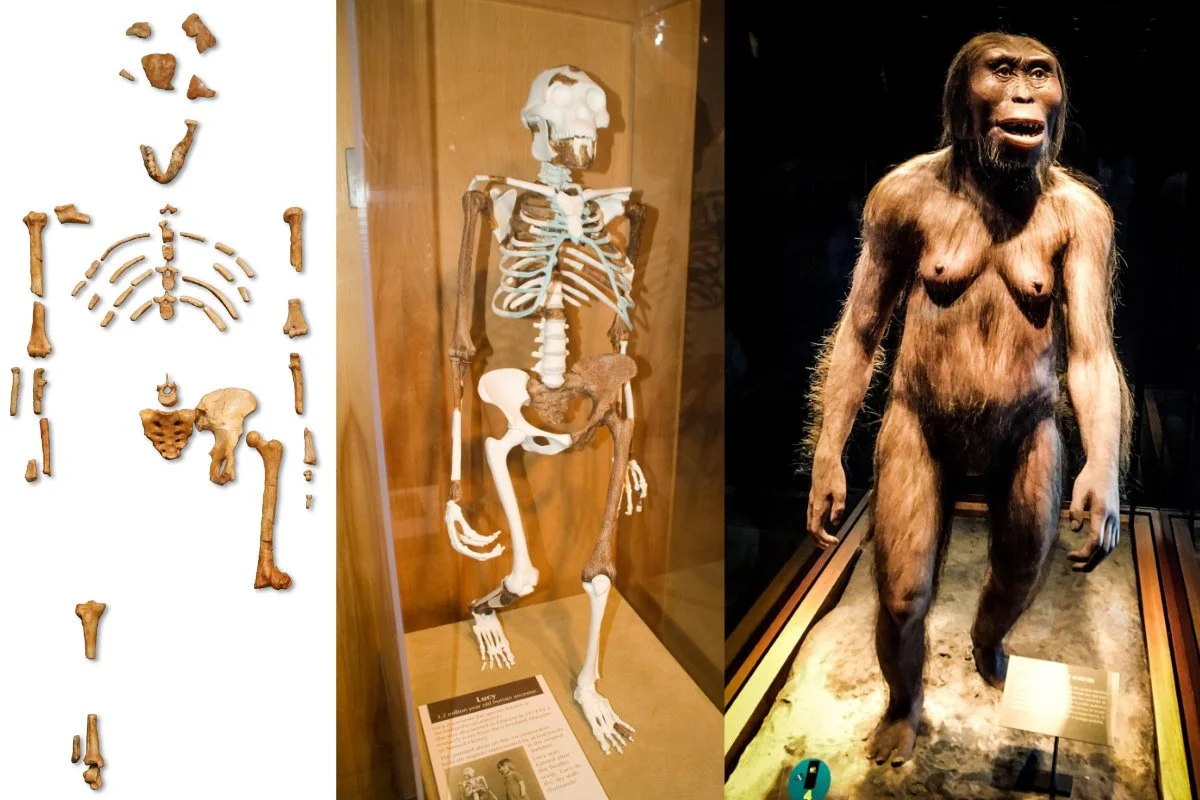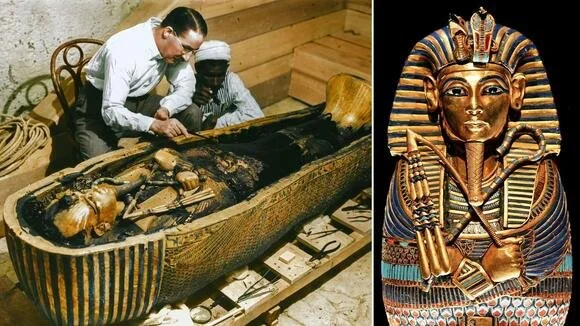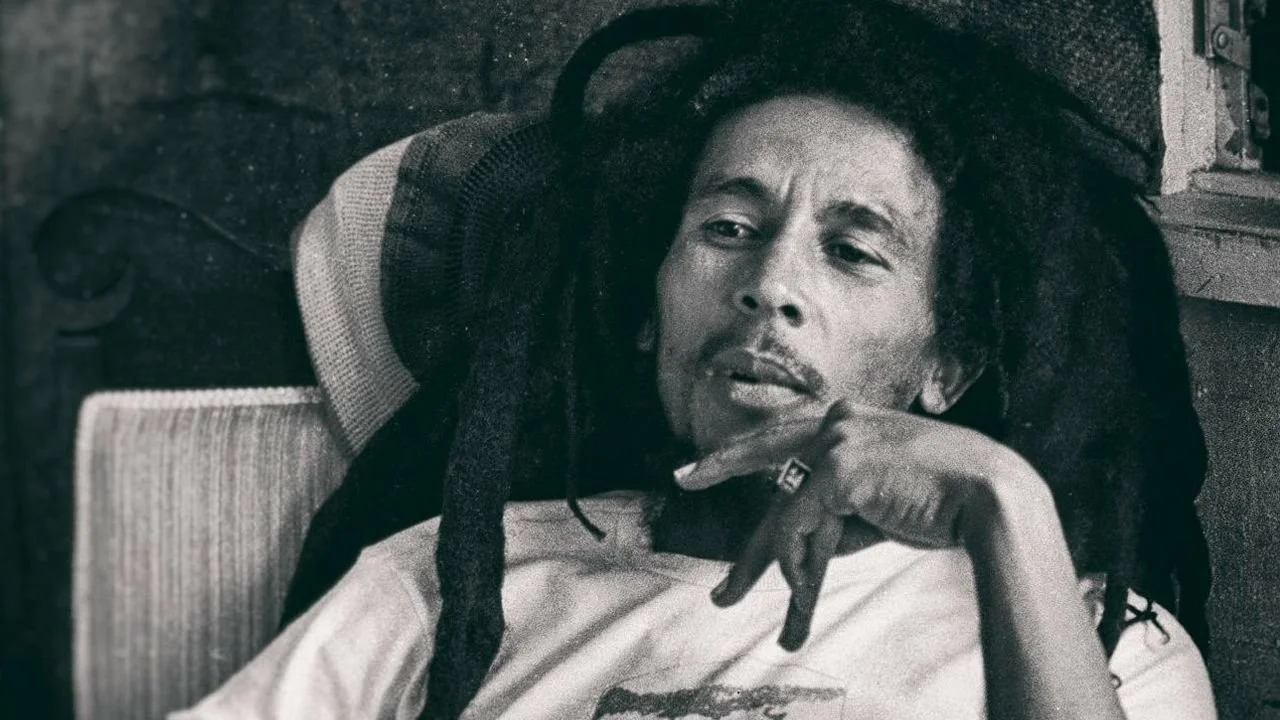By The Landlord
“No legacy is so rich as honesty.” – William Shakespeare, All's Well That Ends Well
“I've got to think of myself as the luckiest guy. Robert Johnson only had one album's worth of work as his legacy. That's all that life allowed him.” – David Bowie
“I only hope that one day, America will recognise what the rest of the world already has known, that our indigenous music – gospel, blues, jazz and R&B – is the heart and soul of all popular music; and that we cannot afford to let this legacy slip into obscurity.” – Quincy Jones
“I think my legacy should be that when I started in show business, there wasn't no such thing as rock n' roll. With Tutti Frutti, that's when rock really started rocking.” – Little Richard
“No matter what happens in life, be good to people. Being good to people is a wonderful legacy to leave behind.” – Taylor Swift
“Legacy above finances; artistry above fame.” – Jimmy Chamberlin
“If you're going to live, leave a legacy. Make a mark on the world that can't be erased.” – Maya Angelou
“Someone is sitting in the shade today because someone planted a tree a long time ago.” – Warren Buffett
“The bitterest tears shed over graves are for words left unsaid and deeds left undone.” – Harriet Beecher Stowe
“The mass of men worry themselves into nameless graves while here and there a great unselfish soul forgets himself into immortality.” – Ralph Waldo Emerson
“Sir Percy Browne inherited a country house, 50,000 acres, property in London, and a noble profile. I inherited a shaving mug. From my grandfather. What we do with our inheritance? That, you might say, is the question.” – Harry Perkins, A Very British Coup
So, what might be yours? A house, some cash, hopefully fond memories in relatives, old photographs? A collection of colourful teapots, or quirky inherited traits? A library of books, or repeating behavioural tendencies? A solid set of vinyl and song lists, or some online social-media graveyard?
Legacy is topic that throws a huge spectrum of thoughts, emotions, questions and patterns, from the material to the ethereal, and covers all we experience from our ancestors, immediate and distant. Our legacy, collectively, is constantly being formed and re-formed in the actions of the past and the present, pulled along in inherited strings of DNA, or the streets we walk on. And thinking about what we might leave behind seems, at least in me, feelings that hover between the flippant, and when it comes to contemplating this when my time comes, the profound.
So legacy can be defined as the inherited material items listed and left in wills, but it has a greater meaning that can be even more interesting, especially when also expressed in song. Perhaps might be in the very form of children or other relatives , or, perhaps, if you’re a teacher, the impressions and effects left on students, or others who know or have met you, but also even wider ripples across society, by influential people, or seen in architecture, politics, history and social movement. We all leave a legacy, big or small, light or heavy, fleeting or lasting.
We may all like to leave something behind as our legacy, but there’s always the danger of it going out of print:
Some leave lasting impressions, but let’s face it, after a generation or so, most of us won’t be remembered. As Steve Martin puts it: “I try not to think about legacy because it is all folly. Many people who were quite significant in their time are completely forgotten.”
So let’s get back to basics. Here’s Bill Bryson pulling no punches on our most literal form of legacy:
“It isn't easy to become a fossil ... Only about one bone in a billion, it is thought, becomes fossilized. If that is so, it means that the complete fossil legacy of all the Americans alive today – that's 270 million people with 206 bones each – will only be about 50 bones, one-quarter of a complete skeleton. That's not to say, of course, that any of these bones will ever actually be found.”
But some anonymous sets of bones do finally have their day in the sun, such as in November 1974 in northern Ethiopia at the Hadar site, where ‘Lucy’ aka Australopithecus afarensis was found, leaving a enormous legacy of human evolutionary knowledge.
Lucy in the … famous legacy of a Australopithecus afarensis skeleton in 1974
You can’t take your belongings with you, that is unless you think like some Ancient Egyptian king like Tutankhamun, whose legacy was left behind, and turned out to be more valuable to the rest of the world.
Afterlife takeaway? But really left behind: the legacy of Tutankhamun
But sweeping the legacy meaning even wider, it could also pertain to ancient civilisations that have left a rich imprint on us even today, from our African ancestors to China to Persia and Middle East, to South America, all cradles of modern cultural human life.
The shadows of culture coming out of European religion and colonialism of course are profound and widespread. Here are two big statements pertaining to that. Here’s Barack Obama on the history of race in America: “I don’t believe it is possible to transcend race in this country. Race is a factor in this society. The legacy of Jim Crow and slavery has not gone away. It is not an accident that African-Americans experience high crime rates, are poor, and have less wealth. It is a direct result of our racial history.”
That’s a huge subject in itself, but over in the UK, patterns set even longer ago than that endure, according to writer about globalisation and ecology, Paul Kingsnorth: “I do think that the legacy of the Norman conquest is still strong in Britain. Our hereditary monarchy, our established church, our ancient county structures, though hollowed out in many ways, are a direct result of what happened in 1066.”
So in Britain, arguably it’s William the Conqueror’s Domesday Book of 1086 setting out records of land ownership, still has a bigger legacy on modern life now even than the Bible. Privilege, inherited wealth, monarchy, class structure, and controlling power abide.
1086’s Domesday Book has an enduring legacy on British life
That cultural pattern of inheritance and identity, appears in everything, even in this cosy, but also very cringeworthy sentimental, saccharine 1980s TV ad for Werther’s Original toffee sweets, capturing the epitome of a certain form of Britishness, but also playing on the emotions of legacy to sell sugar:
Meanwhile, this piece began with a quotation by Harry Perkins, the fictional working-class Sheffield steel-worker from the early 1982 novel by Chris Mullins. Perkins becomes an MP, then leader of the Labour Party, and by surprise, the prime minister in an election, suddenly setting the cat among the pigeons of the British establishment. His popularity stems from his disarmingly honesty, but once in power, he has to fight a shit-storm of media lies and civil service manipulation by those behind the scenes, even from those within his own party. The Sir Percy Browne to whom he refers is head of MI5, a smooth, underhand operator who pretends to work for him, but is really manoeuvring to dislodge him for his Tory friends. The novel was brilliantly adapted for TV in a three-part series in 1988, with Perkins superbly portrayed by Ray McAnally. In this scene, Perkins is being manipulated to resign over a minor scandal, but makes a surprise move by telling the truth on live TV, and calling a general election:
As he puts it: “There is a much more important issue at stake here than the future of Harry Perkins, steelworker from Sheffield. You the people must decide whether you prefer to be ruled by an elected government, or by people you've never heard of. People you've never voted for. People who remain quiet, behind the scenes, generation after generation. Yea, even unto the Middle Ages.”
A chilling depiction of a a legacy running right back to the Domesday Book. Look at the politics of the last few years, and history has very borne this out yet again. Legacy then may be associated with fond memories, generosity and warmth, but is also a sharp, multi-edge sword of history and social control.
But this week’s topic is of course all about song, and also what legacy means from the person that hopes to leave it, so there’s a host of musicians also in the Bar telling us more about that. After all, many songwriters and performers do what they do with a motive of creating one.
Opening the show before the musicians sing out, here’s a couple of stars that perform in other forms. “Create your legacy, and pass the baton,” says pioneering women’s tennis icon Billie Jean King. Or at least pass the racket, or call for new balls please.
And here’s theatre’s great theatre director Peter Brook also opening up for our performers: “That, for me, is the only real legacy: the idea that one has left a lingering trace in people's memories. In the end, that's all a director can hope to do.”
But some artists just like keeping it cute and simple. “'Let the music play on' would be my legacy,” pipes up Lionel Richie, shamelessly grabbing a moment on our piano to give us few seconds of one of his hits.
“Well, I would just hope my legacy would be bringing smiles to faces. Happiness with my music,” chips in a sunny Janet Jackson.
Meanwhile the late great Tina Turner is also in the house, looking back at a career of fortitude in adversity: “My legacy is that I stayed on course... from the beginning to the end, because I believed in something inside of me.”
Some, however, think more specifically about a musical relative:
“I've got to sing for Pops; I've got to keep my father's legacy alive because he started all of this. So I started calling people, and nobody would give me a chance, but I didn't let that stop me. I took money out the bank and I started making me a record, and I did it in this guy's basement,” recounts Mavis Staples, the great singer of the Staples clan.
And on another prominent father figures here’s Ziggy Marley on his dad Bob: “Proud about my father? What am I most proud of? I think I'm proud of the legacy he left I think is what it is. He has left us so much.”
Rita Marley’s also here: “As Bob says, 'We must carry on.' So he has left us a legacy of music to carry on for generations and generations into generations.”
Bob Marley: a vast legacy, not just in music
So there’s a burden of responsibility, not always easily carried, or lived up to, that comes with a musical and cultural legacy.
And also on the father front, here’s Martha Wainwright on her dad Loudon Wainwright III: “I'm in hotel rooms night after night, playing a lot of the same venues as my dad and carrying the guitar that used to be his. We're the same person. I don't know if he realises how much of a legacy he has left to his children.”
But meanwhile Jeff Buckley tragically had a difficult time reconciling his legacy from his father Tim, railing against the idea: “I'm concerned with the future. I'm concerned with my life, my present, my friends, people I love, people who love me. I have no intention of taking on a legacy that wasn't bestowed on me.”
Some artists very much feel the importance of a musical legacy not from a relative but from a wider social inheritance.
“I've got to where I am in life not because of something I brought to the world but through something I found - the wealth of African culture,” says Hugh Masekela.
“So much of what I create has been due to the influence of Miles Davis and Donald Byrd, and so many of those that have passed on. Their music, their legacy lives on with the rest of us because we are so highly influenced by their experience and what they have given us,” says Herbie Hancock.
And here’s pioneering hip-hop star KRS-One, who thinks it’s important to channel your heroes: “Ask any rapper or singer what artist they are an expert on. What artist are they looking to emulate, and really, what artist is the one person they are an expert on? You see, if you want any kind of longevity, if you want any kind of legacy, you need to know what ancestral line you are from.”
Moving to another culture and genre, Catalan superstar Rosalía is also in the house, and thinks also of her musical inheritance, and how important it is to channel it: “I wanted to establish my musical legacy and honour the classic sound of flamenco in the most traditional sense.”
But some performers worry and struggle with how they will be remembered, despite huge commercial success. “Never be afraid to be kicked in the teeth. Let the blood and the bruises define your legacy,” declares Lady Gaga.
And here’s Katie Perry: “I sacrifice in my love life and my social life, but those things will be there in three or four years. This is a really important time in my life. I can't just be the girl who sang I Kissed a Girl. I have to leave a legacy.”
But will Katie be remembered for more? I suppose we can have a say in that.
Some bands, after decades of success, begin to be classed as legacy acts - no longer really producing new material but living off their past work There are many of those from ABBA to the Stones, and arguably worthily so, but the Cure’s Robert Smith really also hoped that’s not what his band would become: “I don't want The Cure to fizzle out doing 45-minute shows of greatest hits. That would be awful for our legacy,” he said. Happily that’s not happened. They do whopping, legacy-defining three-hour shows instead.
So then, it’s time to contribute to your legacy with song suggestions on this topic. The will of the people (or at least the Landlord) brings you this week’s guest guru to put together playlists from your nominations, the marvellous Marco den Ouden! Place your ideas in comments below, deadline at 11pm UK time on Monday for playlists published next week. How will you leave it?
New to comment? It is quick and easy. You just need to login to Disqus once. All is explained in About/FAQs ...
Fancy a turn behind the pumps at The Song Bar? Care to choose a playlist from songs nominated and write something about it? Then feel free to contact The Song Bar here, or try the usual email address. Also please follow us social media: Song Bar Twitter, Song Bar Facebook. Song Bar YouTube, and Song Bar Instagram. Please subscribe, follow and share.
Song Bar is non-profit and is simply about sharing great music. We don’t do clickbait or advertisements. Please make any donation to help keep the Bar running:






